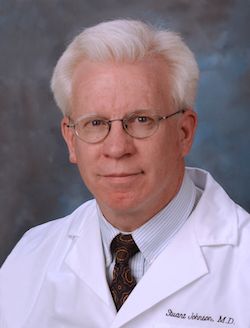Article
Pulsed and Tapered Vancomycin Likely Route to Recurrent Clostridium difficile Cure
Author(s):
Researchers from Loyola Medicine retrospectively studied 100 vancomycin taper and pulse treatment patients treated for recurrent C. difficile infection over the span of 5 years.

A tapered and pulsed regimen with vancomycin — with diligent follow-up — can achieve significant cure rates in recurrent Clostridium difficile (C. difficile) infected patients, according to a new study.
Researchers from Loyola Medicine retrospectively studied 100 vancomycin taper and pulse treatment patients treated for recurrent C. difficile infection between January 1, 2009 and December 31, 2014. Their clinic, the study authors wrote, has been a referral center for the infection for the past decade.
However, despite the guidelines for treatment of recurrent C. difficile infection being not too different than recurrent episodes — except for the use of vancomycin when the case is severe – there have not been many studies on this vancomycin taper and pulsed dosing.
The researchers observed that after a referral, the confirmed recurrent C. difficile patients were treated with a vancomycin taper and pulse regimen: a taper of vancomycin to once-daily, followed by alternate day dosing; or once-daily followed by alternate day dosing; followed by every third day, for at least 2 weeks. After this regimen, all patients had 90-day follow-up documentation.
On average, the patients in the clinic were on their third C. difficile diarrhea episode. Half of the patients had also received a standard course of vancomycin, while another third had received some type of vancomycin taper regimen, the researchers said.
Despite the fact that many of these patients were a “treatment experienced” population, 75% of the patients who received a supervised vancomycin taper and pulsed regimen achieved a cure, study author Stuart Johnson (pictured), MD, told MD Magazine. He added that the results were further improved for patients who received the expended pulse phase: 81% achieved a cure.
“The findings were not unexpected to us, but I think that many clinicians will be surprised how well a deliberate, prolonged vancomycin taper and pulse regimen — with careful follow up – works,” Johnson said.
There were no significant differences among the patients in terms of gender, age, concomitant antibiotics, proton pump inhibitor use, histamine receptor-2 blocker use, or patients with a regimen greater than 10 weeks in length, the researchers continued.
The researchers added that their finding of improved cure rates with alternate-day dosing plus every third day dosing over strictly alternate-day dosing is consistent with the hypothesis that pulsed dosing can promote a cyclical decrease in spore burden, they wrote. This can also permit the resetting of normal microbiota in the gut.
Johnson concluded that the clinical implications of the study show most recurrent C. difficile patients do not need fecal microbiota transplant (FMT).
“FMT has received an enormous amount of press and this procedure is now widely available throughout the US,” Johnson said. “FMT is attractive because it addresses one of the primary mechanisms involved with recurrent C. difficile infection, a marked disruption of the resident bacteria that populate the intestine and provide an important host defense against C. difficile.
Although physicians screen donor feces for “known pathogens,” not all is known of the potential complications to come from FMT, Johnson said.
“In addition, it appears that efficacy with a carefully supervised vancomycin taper and pulse regimen compare to that achieved with FMT,” Johnson said.
The study, “Vancomycin Taper and Pulsed Regimen with careful Follow up for Patients with Recurrent Clostridium difficile Infection,” was published in the journal Clinical Infectious Diseases.
Related Coverage
Study: Dogs Are a Pediatric C. difficile Risk Factor





